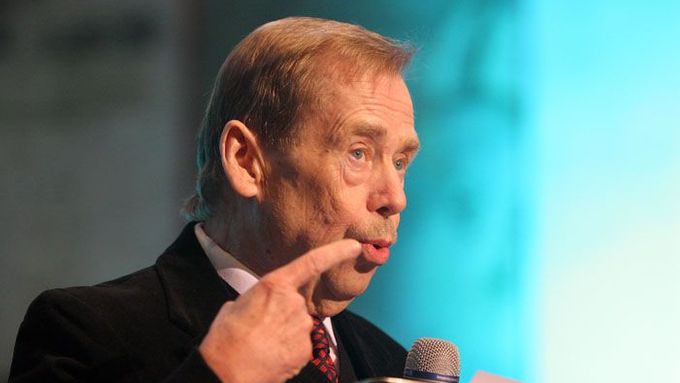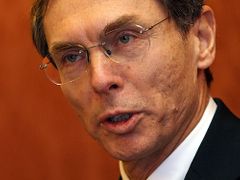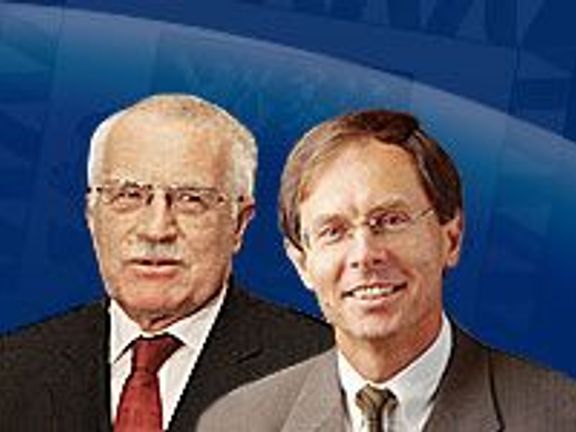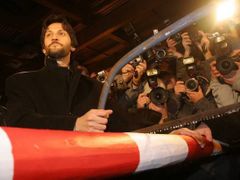Prague - The former Czech President Václav Havel believes his one-time economic advisor Jan Švejnar is better equipped to run the country than the incumbent and Havel's long time political rival Václav Klaus.
Havel made his preference known in a lengthy radio interview broadcast on the first day of the New Year.
"New blood and new impulses are needed," Havel said in what could be a perfect ad for the radio show where he was the guest of honor - Impulses of Václav Moravec on Radio Impuls, a popular private station which claims a daily audience of one million listeners.
Not local? All the better
Havel reminded the listeners that Švejnar, professor of economics at the Michigan University, is the author of the economic reform concept from the early 1990s.
"Professor Švejnar´s long-term stay abroad is a great advantage. He did not live here in the communist times, so he is not entangled in all these local nets. He did not have to vote for the National Front candidates," said Havel, alluding to the faux elections held during the de facto one-party rule in former Czechoslovakia.
"He travelled extensively, studied economic reforms and then authored an alternative concept of our reform in the 1990s according to which creating proper legal environment was to come before the big property transfers," added Havel who believes it was wrong not to pursue this way and therefore Czechs had to pay a price for that.
Havel made it clear he did not intend to be involved in Jan Švejnar´s campaign, but he challenged Václav Klaus to take part in a TV debate with Jan Švejnar, something the president has steadfastly refused to do.
"If some political parties agree on their candidate against one political party that has a different presidential nominee, I think it very logical and symmetric these two nominees should square up in a TV debate," added Havel.
Too close to call
Klaus has an unequivocal support of the Civic Democratic Party (ODS), which he founded in the early 1990s and which today controls most seats in the parliament (122 of the total 281 in the two chambers).
Švejnar received a pledge of support from the main opposition party Social Democrats. It is also believed all the lawmakers from the Green Party would give him their vote.
Communists have made it clear they would vote for Švejnar in the first round, but refused to pledge their support further, clearly hoping to gain political capital once the stakes are raised.
The Christian Democrats (KDU-ČSL), part of the ODS-led ruling coalition (together with the Greens) remain split on the issue with some senior members openly supporting Klaus and others preferring Švejnar.
The presidential election done at the joint session of the two chambers of the parliament - is due on February 8. At this moment, the result is too close to call as the intense political horse-trading continues.
Alienation from the politics
The most significant event of the last year was the Czech Republic's entry to the Schengen, Havel also said in the same interview.
The Czechs´ entry to the Schengen area is a distinct milestone in becoming fully integrated into Europe, Havel believes, even though not much is going to change on the surface.
"All we had to do before the Schengen (zone expansion) was to show briefly our passport from the car window when passing through the borders. It used to take only 3 minutes and now it takes zero minutes. More than anything else, it has a symbolic meaning," added Havel.
The year 2008 will not be a groundbreaking year for the Czech Republic but for the European Union which faces an important task to define its own identity, the ex-president believes.
According to Havel one of the major problems of the current Czech society is the fact that Czechs are becoming alienated from politics.
"Politics has become some sort of entertainment for people. From one scandal to another while the important and essential issues the government is doing or the parliament is passing in bills are not explained to citizens in an understandable and engaging Czech language. Scandals of any kind or quasi scandals seem to be the priority," said Havel.








